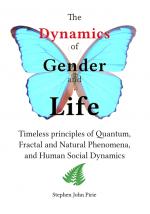Continuing on from 'Consider some stuff', we can inquire further about the nature of stuff.
Since it's infinitely inclusive, my choices (and everyone else's) necessarily are 'made of' this one-stuff, whatever it is.
As well as the brain matter that facilitates (filters and frames the range of) choices.
Once again, one-stuff can't be excluded from all that occurs, otherwise it wouldn't be one-stuff that is the ground of all.
I've just listened to an audio (podcast) of some spiritual, self-development school, who talk about all the wonderful things and experiences to be had when we get to 'transcend'.
Transcending is the way forward, it seems.
Uhm, what exactly is it that we are supposed to transcend?
Presumably it is our wrong-headed egos or some such.
Only question is, does it make sense to 'transcend' anything?
Recently I was reading an interesting book, and it advised one to wake early one morning (in the dead of night, around the 3.30am mark) and quietly ask what is really important in one's life. As was explained in my Letting go post, I've drifted in recent years, not exactly sure how I can best be of benefit and service to people.
In recent years there's been much talk of the Law of Attraction, popularised in the film "The Secret".
As with many systems of belief, there is a great deal that is helpful and uplifting about the "Law of Attraction". We can and do attract favourable (or unfavourable) 'things' into our lives, based on our beliefs.
But the attractive principle is a deeply feminine energy - it's reliant on the receptive (on receiving); of being open and inviting.
[update, October, 2016: see below]
Over the years I've come to more fully appreciate the extent to which many people seek refuge in illusory ideals ... be it religious perfection, or scientific certainty.
Last night while enjoying a wonderful dinner I had the pleasure of engaging conversation with a number of intelligent men on matters philosophical.
It became evident that some held beliefs that were rooted in the ideal of perfection: the age-old belief that when we get 'over there' or perhaps 'up there' everything will be 'perfect' (at which time, we'll have 'transcended' the troubling, fault-ridden ego).
